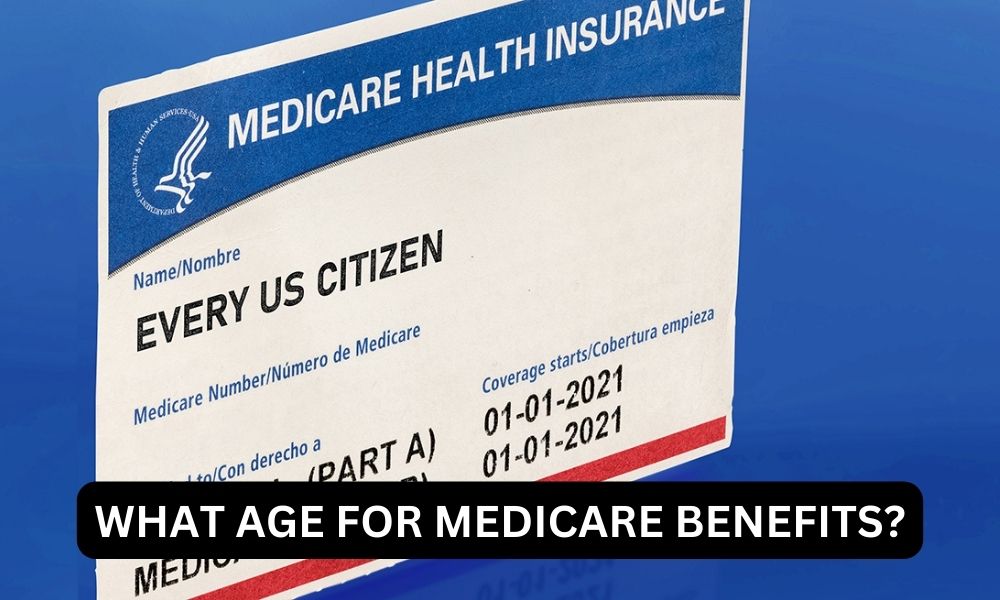Medicare is a federal health insurance program that provides coverage for millions of Americans aged 65 and older, as well as certain younger individuals with disabilities and those with end-stage renal disease. It is a vital safety net for many seniors, providing access to affordable healthcare services and prescription drug coverage. However, there is often confusion and uncertainty surrounding the age at which one can become eligible for Medicare benefits. In this article, we will explore the age for Medicare benefits and the eligibility requirements that must be met.
Contents
What is the Age for Medicare Benefits?
The age for Medicare benefits is 65 years old. This means that individuals who are 65 years old or older are automatically eligible for Medicare coverage. However, there are certain exceptions to this rule, which we will discuss in more detail below.
It is important to note that the age for Medicare benefits is not the same as the age for full retirement benefits from Social Security. While the full retirement age for Social Security benefits is currently 66 years and 2 months for those born in 1955, the age for Medicare benefits remains at 65 years old for all individuals.
Read:Should i have taxes withheld from unemployment benefits?Eligibility Requirements for Medicare Benefits
In order to be eligible for Medicare benefits, individuals must meet certain requirements. These requirements vary depending on the specific part of Medicare that one is applying for. Let’s take a closer look at the eligibility requirements for each part of Medicare.
Medicare Part A
Medicare Part A, also known as hospital insurance, covers inpatient hospital care, skilled nursing facility care, hospice care, and some home health care services. Most individuals do not have to pay a premium for Part A coverage, as long as they or their spouse have paid Medicare taxes for at least 10 years while working.
The eligibility requirements for Medicare Part A are as follows:
- Individuals aged 65 and older
- Individuals under 65 with certain disabilities
- Individuals of any age with end-stage renal disease (ESRD) or amyotrophic lateral sclerosis (ALS)
It is important to note that individuals who are not automatically eligible for premium-free Part A coverage may still be able to enroll in Part A by paying a monthly premium.
Medicare Part B
Medicare Part B, also known as medical insurance, covers medically necessary services and supplies, including doctor visits, preventive services, and outpatient care. Unlike Part A, Part B requires individuals to pay a monthly premium, which is based on their income.
Read:A positive externality or spillover benefit occurs whenThe eligibility requirements for Medicare Part B are as follows:
- Individuals aged 65 and older
- Individuals under 65 with certain disabilities
- Individuals of any age with end-stage renal disease (ESRD) or amyotrophic lateral sclerosis (ALS)
It is important to note that individuals who are automatically enrolled in Part A are also automatically enrolled in Part B, unless they choose to opt out.
Medicare Part D
Medicare Part D, also known as prescription drug coverage, helps cover the cost of prescription drugs. It is available to individuals who are enrolled in Medicare Part A and/or Part B and is provided through private insurance companies.
The eligibility requirements for Medicare Part D are as follows:
- Individuals aged 65 and older
- Individuals under 65 with certain disabilities
- Individuals of any age with end-stage renal disease (ESRD) or amyotrophic lateral sclerosis (ALS)
It is important to note that individuals who are automatically enrolled in Medicare Part A and/or Part B are also automatically enrolled in Part D, unless they choose to opt out.
Exceptions to the Age for Medicare Benefits
While the age for Medicare benefits is 65 years old, there are certain exceptions to this rule. These exceptions apply to individuals who are under 65 years old and have certain disabilities or medical conditions.
Read:How to explain out-of-network dental benefits to patients?Individuals with Disabilities
Individuals who are under 65 years old and have been receiving Social Security disability benefits for at least 24 months are automatically enrolled in Medicare. This includes individuals with disabilities such as amyotrophic lateral sclerosis (ALS), end-stage renal disease (ESRD), and permanent kidney failure requiring dialysis or a kidney transplant.
Individuals who are under 65 years old and have been diagnosed with Lou Gehrig’s disease (ALS) are also automatically enrolled in Medicare, regardless of how long they have been receiving disability benefits.
Individuals with End-Stage Renal Disease (ESRD)
Individuals of any age with end-stage renal disease (ESRD) are eligible for Medicare coverage. This includes individuals who require regular dialysis or have had a kidney transplant. These individuals are automatically enrolled in Medicare, regardless of their age or whether they are receiving Social Security disability benefits.
Conclusion:
The age for Medicare benefits is 65 years old, but there are exceptions for individuals with certain disabilities and medical conditions. Medicare is a vital safety net for many seniors, providing access to affordable healthcare services and prescription drug coverage. It is important for individuals to understand the eligibility requirements for each part of Medicare in order to ensure they have the coverage they need.
Whether you are approaching the age for Medicare benefits or have a loved one who is, it is important to stay informed and educated about the program. By understanding the eligibility requirements and exceptions, you can ensure that you or your loved one receives the necessary healthcare coverage and benefits. Remember, Medicare is a valuable resource that can greatly improve the quality of life for seniors and individuals with disabilities.









